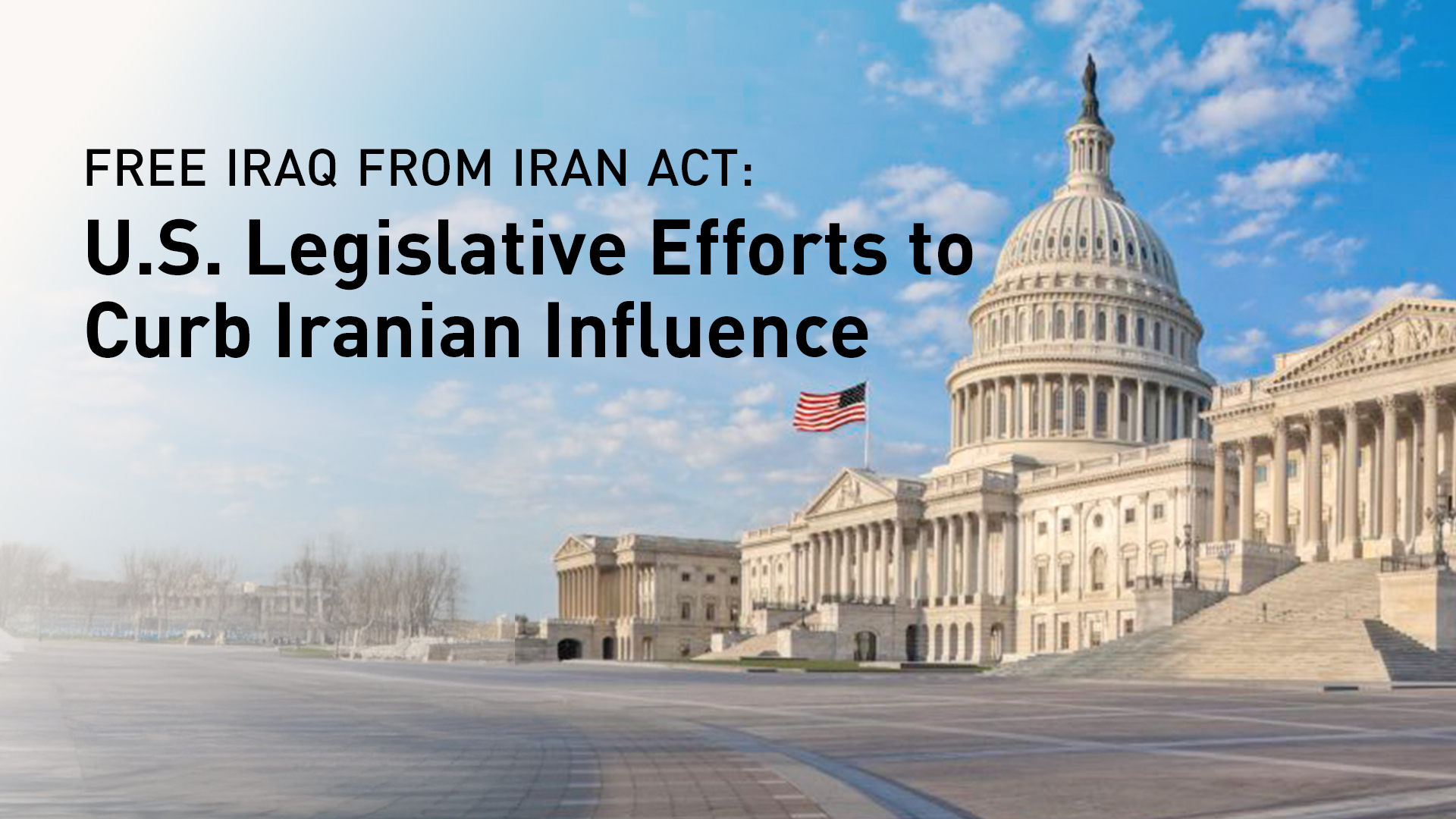Free Iraq from Iran Act: U.S. Legislative Efforts to Curb Iranian Influence
The proposed Free Iraq from Iran Act seeks to designate key Iran-backed groups operating in Iraq as terrorist organizations and to prohibit U.S. funds from reaching these militias.

ERBIL (Kurdistan24) - In a concerted effort to bolster Iraq's sovereignty and diminish Iranian influence within its borders, U.S. Representative Joe Wilson (R-SC) has been at the forefront of legislative initiatives aimed at addressing these challenges. The proposed Free Iraq from Iran Act seeks to designate key Iran-backed groups operating in Iraq as terrorist organizations and to prohibit U.S. funds from reaching these militias.
Grateful to speak at @RepublicanStudy Maximum Pressure Press Conference. The regime in Tehran must be defeated. Grateful to introduce:
— Joe Wilson (@RepJoeWilson) April 1, 2025
- The Maximum Support Act
- The Free Iraq from Iran Act
- The No Hezbollah in Our Hemisphere Act pic.twitter.com/y3HAyJmCzH
Legislative Measures Background
Representative Wilson has consistently expressed concerns over Iran's pervasive influence in Iraq, particularly through its support of militias that undermine Iraqi sovereignty and pose threats to U.S. interests.
In July 2020, Wilson introduced amendments to the Defense Appropriations bill to prevent U.S. taxpayer funds from being allocated to Iranian-backed militias, notably the Badr Organization.
He emphasized that these groups, which are part of the Popular Mobilization Forces, have been involved in destabilizing activities, including attacks on the U.S. Embassy in Baghdad.
Furthering these efforts, in November 2018, Wilson applauded the House's passage of the Preventing Destabilization of Iraq Act. This legislation aimed to impose sanctions on individuals and groups perpetrating violence that threatens Iraq's stability.
Wilson's amendment to this act specifically targeted Iranian-backed terrorist organizations, including Liwa Fatemiyoun and Liwa Zainebiyoun, highlighting the necessity of a comprehensive strategy to counter Iran's malign influence in the region.
Recent Developments and Calls for Action
In January 2025, Wilson intensified his critique of Iraq's judiciary, labeling the Supreme Court as unconstitutional and alleging its manipulation by Iranian interests. He called for sanctions or comprehensive reforms of Iraq's justice system, pointing to Chief Justice Jassim Abboud Ameri as an alleged puppet of the Badr Corps.
By February 2025, Wilson urged the termination of sanctions waivers that allowed Iraq to import gas and electricity from Iran. He argued that such waivers enable financial flows to Tehran, which could be used to fund activities hostile to American interests.
This appeal aligned with President Donald Trump's executive order to intensify pressure on Iran by cutting off financial resources that could fund terrorist activities.
Implications and Strategic Objectives
The overarching goal of these legislative and policy measures is to reinforce Iraq's independence by curbing Iranian influence, particularly through the designation of Iran-backed militias as terrorist organizations and ensuring that U.S. funds do not inadvertently support such entities.
By advocating for sanctions and stricter controls, Wilson and like-minded policymakers aim to promote stability in Iraq and safeguard U.S. interests in the region.
These initiatives reflect a broader U.S. strategy to counter Iran's regional ambitions and support for proxy groups. By addressing the financial and operational networks of these militias, the U.S. seeks to weaken Iran's capacity to project power and influence in Iraq and the broader Middle East.
As these legislative efforts progress, their effectiveness will depend on coordinated implementation and the cooperation of Iraqi authorities committed to preserving their nation's sovereignty and stability.